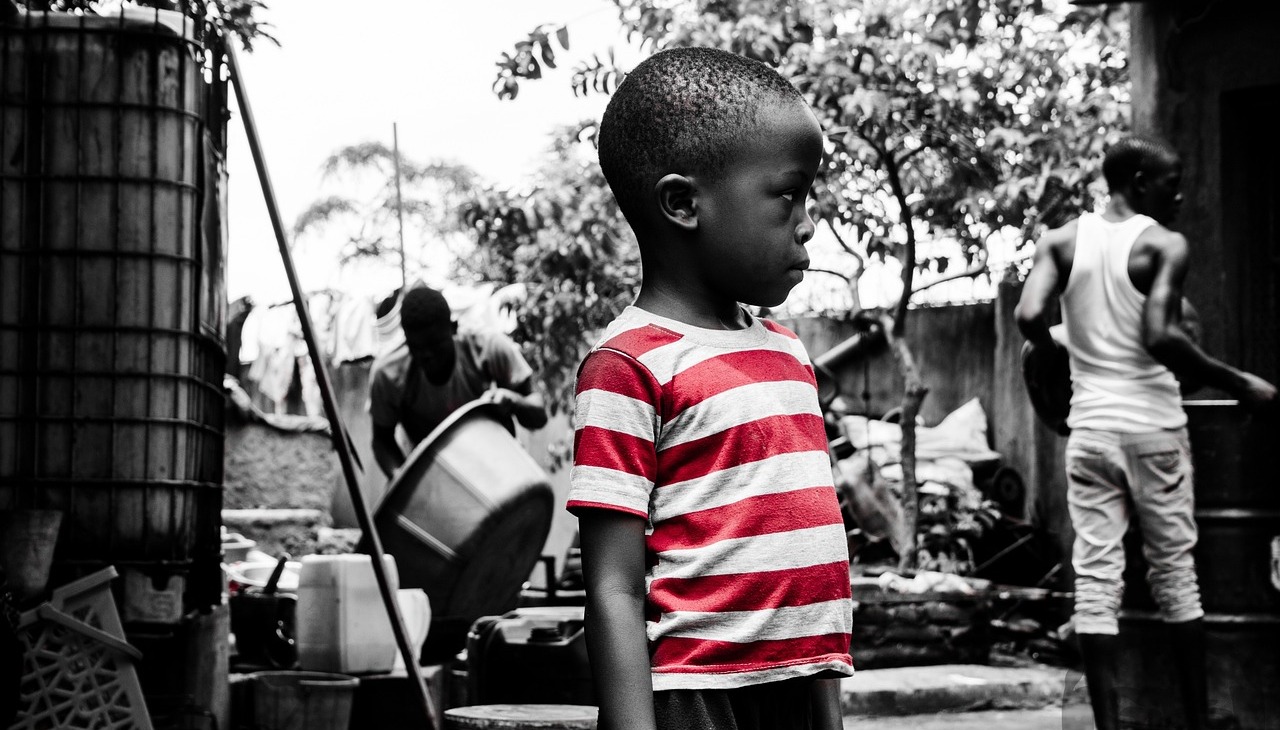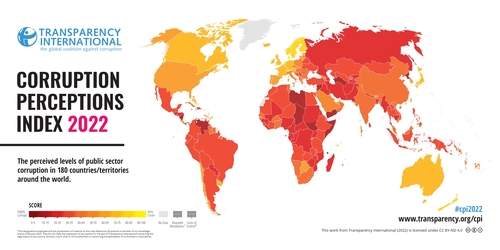
New Corruption Perceptions Index (CPI) highlights the ongoing instability in the Americas
The 2022 report found that no country around the globe has significantly improved its score since 2017.
In the 2022 Corruptions Perceptions Index recently published by Transparency International, the CPI shows that the scourge remain stagnant in the Americas.
Exposing a renewed cycle of corruption associated with organized crime and political instability, the report highlights that Latin American leaders have not taken decisive action to curb the phenomenon or to strengthen their public institutions throughout Latin America the region.
Criminal networks have also strengthened their control to exert power over authorities in many countries, exacerbating violence in the region and increasing instances of human rights violations.
“Pervasive corruption across the Americas fuels the many other crises facing the region. Weak governments fail to stop criminal networks, social conflict, and violence, and some exacerbate threats to human rights by concentrating power in the name of tackling insecurity. The only way forward is for leaders to prioritise, decisive action against corruption to uproot its hold and enable governments to fulfil their first mandate: protecting the people,” noted Delia Ferreira Rubio, chair of Transparency International.
The global average in the #CPI2022 remains unchanged at a score of 43 out of 100 for the eleventh year running, and more than two-thirds of countries have a serious corruption problem, coming in at a score below 50.
— Transparency International (@anticorruption) February 1, 2023
Here's the analysishttps://t.co/DHUQQhzH9T
The results pic.twitter.com/zgYzc6i19o
The average corruption of the Americas
Underlining how no country has significantly improved its score since 2017, the CPI ranks 180 countries and territories for their perceived levels of public sector corruption on a scale of zero (highly corrupt) to 100 (very clean).
The average for the Americas remains at 43, and almost two-thirds of the countries are below 50.
These were the scores:
RELATED CONTENT
- Canada (74), Uruguay (74), U.S. (69) and Chile (67) lead the region.
- Honduras (23), Nicaragua (19), Haiti (17) and Venezuela (14) are the lowest in the region. All are accused of having their public institutions infiltrated by criminal networks.
- Cuba (45), Guatemala (24) and Nicaragua (19) all reached record lows
- Barbados (65), Bahamas (64), Costa Rica (54), Jamaica (44), Trinidad and Tobago (42), Colombia (39), Argentina (38), Brazil (38), Ecuador (36), Panama ( 36), Peru (36), El Salvador (33), Dominican Republic (32), Bolivia (31), Mexico (31), and Paraguay (28) complete the regional analysis.
“Sadly, the stagnant U.S. score feels intuitively right. We are still a rule-of-law nation but deep partisan divides and manipulation of democratic practices foster a dangerous skepticism about our politics. At the same time, the United States remains a safe haven for international corruption. Perhaps that’s a place to start. With rare bipartisan support for closing our financial system to corrupt money, Congress and the Biden Administration can adopt critical reforms and begin to restore the integrity of our own democracy,” said Gary Kalman, executive director of Transparency International U.S.

Analyzed scenarios
Transparency International emphasized how the vicious circle generated by the close relationship between criminals, public officials and corruption affects groups that are in dire need more than others — including Indigenous and Afro-descendant groups, LGBTQ+ communities, women and girls, and environmental leaders.
The organization highlighted cases in three countries:
- Brazil — The combination of corruption, authoritarianism and economic recession has proven especially volatile in the South American giant, where the recently terminated Bolsonaro government has been accused of being marked by the dismantling of anti-corruption frameworks, the use of corrupt schemes to favor political allies, and garnering political support in the legislature, misinformation, and attacks on civic space.
- Peru — Marked by a long period of instability, including six different governments, is currently immersed in another major crisis caused by the dismissal of Pedro Castillo and a series of demonstrations seeking the removal of current president Dina Boluarte and the holding of new elections.
- Guatemala — The country is accused of having significantly reversed progress made against corruption by freeing an official accused of money laundering and then taking legal action against those who held him responsible. This added to the multiple accusations of attacks on democracy and human rights by the government.
An urgent call against corruption
Transparency International calls on governments to prioritize the fight against corruption and invites them to:
- Strengthen checks and balances
- Strengthen public institutions
- Defend the rights to information, freedom of expression and of the press, and protecting whistleblowers
“The good news is that leaders can fight corruption and promote peace all at once. Governments must open up space to include the public in decision-making – from activists and business owners to marginalised communities and young people. In democratic societies, the people can raise their voices to help root out corruption and demand a safer world for us all,” stressed Daniel Eriksson, chief executive officer of Transparency International.
Get to know: The Corruption Perceptions Index
Since its creation in 1995, the Corruption Perceptions Index has become the world's leading indicator of corruption in the public sector. The Index ranks 180 countries and territories around the world based on perceptions of corruption in the public sector using data from 13 external sources, including the World Bank, World Economic Forum, private venture and consulting firms, groups from experts and others.











LEAVE A COMMENT:
Join the discussion! Leave a comment.